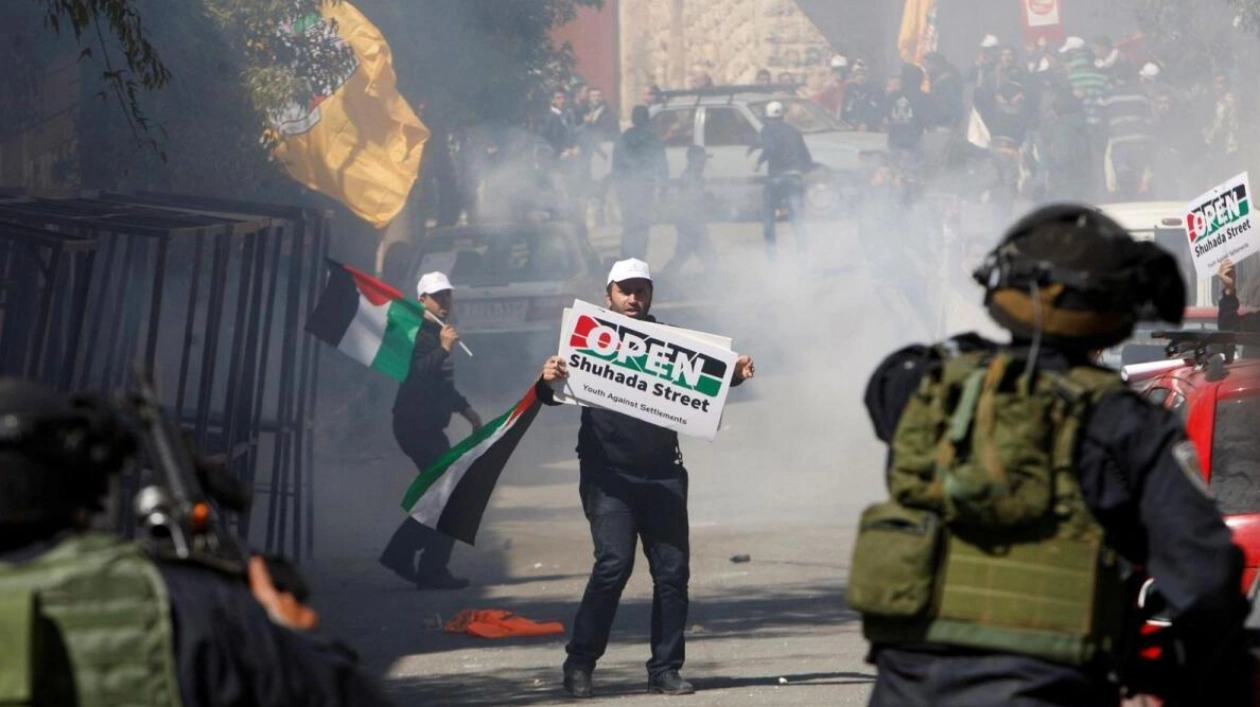Palestinian activist Issa Amro received the Right Livelihood prize on Thursday, an award often likened to an alternative Nobel, for his 'non-violent resistance to Israel's illegal occupation' in the West Bank, according to the jury.
Amro, born in Hebron, a West Bank city with approximately 1,000 Jewish settlers living under heavy Israeli military protection amidst around 200,000 Palestinians, has devoted his life to combating Israel's occupation of the West Bank. At 44, he established the Youth Against Settlements group, which advocates against the expansion of Jewish settlements in the territory—settlements widely deemed illegal under international law.
The rights campaigner has faced repeated detention and torture by both the Palestinian Authority and Israel, the foundation noted. 'It's a miracle that I still exist,' Amro remarked. When Palestine Polytechnic University, where he was studying, shut down in 2003 during the Second Intifada, Amro spearheaded a six-month civil disobedience campaign. 'I managed to reopen the university with other students,' Amro stated. 'I graduated as an engineer and as an activist—it became part of my character,' he added.
The Sweden-based Right Livelihood Foundation also recognized Joan Carling, a Filipino advocate for indigenous rights, Anabela Lemos, a climate activist from Mozambique, and research agency Forensic Architecture for its work in uncovering human rights violations globally. The foundation highlighted that the four prize recipients had 'each made a profound impact on their communities and the global stage.' 'Their unwavering commitment to speaking out against forces of oppression and exploitation, while strictly adhering to non-violent methods, resonates far beyond their communities,' Right Livelihood stated.
Carling from the Philippines was acknowledged for her three-decade defense of indigenous communities, especially in their struggle against mining projects. Lemos, who leads the NGO Justica Ambiental (JA!), was celebrated for her opposition to liquefied natural gas extraction projects in northern Mozambique. Forensic Architecture, a London-based research lab known for 3D modeling conflict zones, won the distinction for 'pioneering digital forensic methods' to ensure accountability for human rights violations worldwide. By collaborating with Ukraine's Centre for Spatial Technologies to reconstruct Mariupol's Drama Theatre before its destruction in 2022, the firm exposed Russia's 'strategies of terror' and 'attempts to obscure evidence of their own crimes,' the foundation said.
Swedish-German philatelist Jakob von Uexkull sold part of his stamp collection to establish the Right Livelihood award in 1980, after the foundation behind the Nobel Prizes declined to create new distinctions honoring efforts in the fields of environment and international development.






